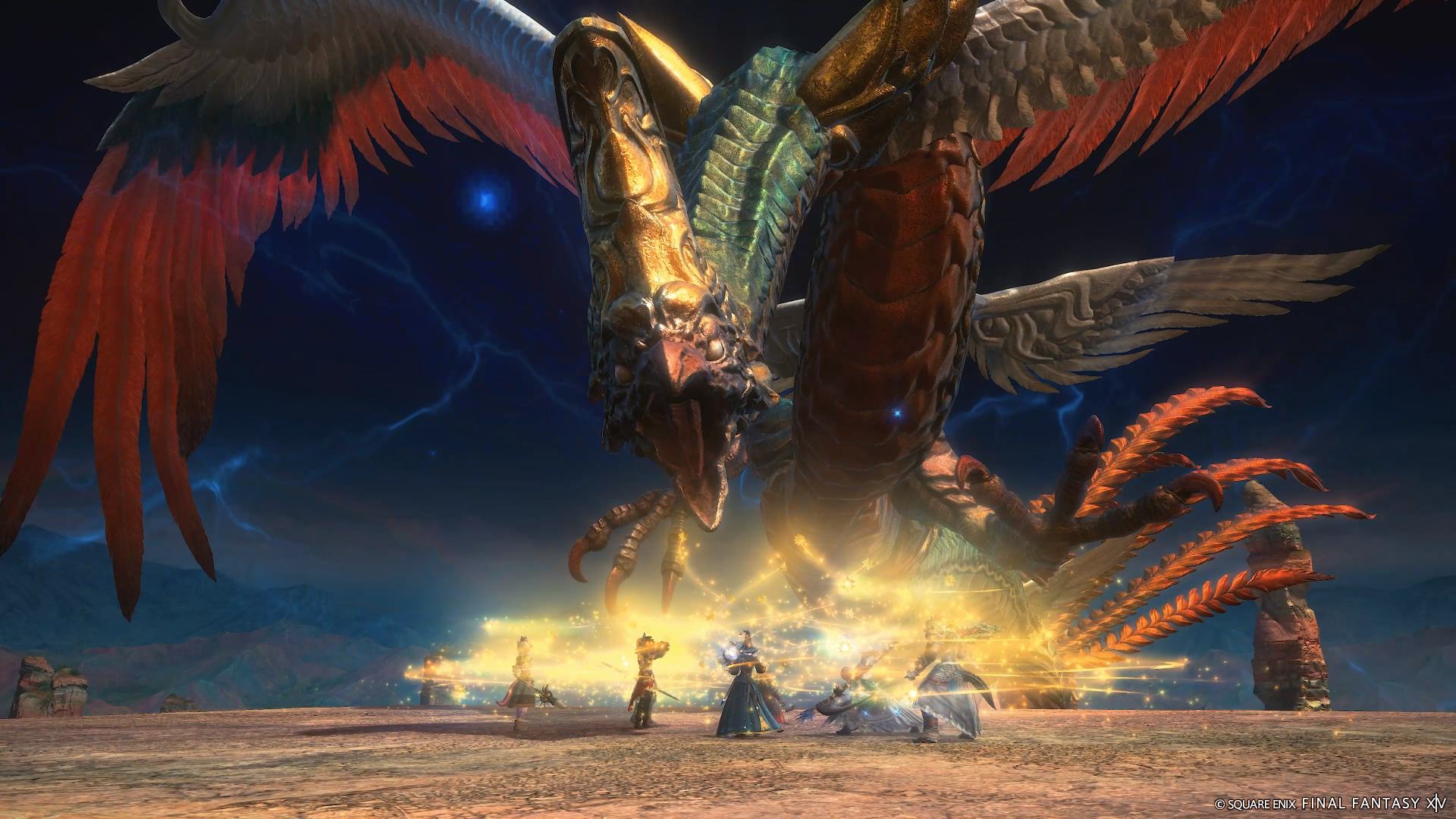
After a year of high-profile harassment campaigns across gaming, Square Enix is warning offending players that enough is enough, laying out its plans to combat toxic behavior in what it calls its Group Customer Harassment Policy. The new policy spells out specific behavior that will not be tolerated from players, as well as the actions it plans to take against offenders — including barring them from Square Enix games.
“Should Square Enix determine that an individual has engaged in an action against one of our employees or partners that exceeds socially acceptable behavior or is harmful, we reserve our right to cease providing support services or to refrain from providing our group's products and services,” the policy, shared on January 10, reads. “Where such action is egregious or with malicious intent, Square Enix reserves its right to protect its employees and partners and to take legal action or criminal proceedings upon consulting the police and/or lawyers.”

Square Enix says that players who abuse its staff could be banned from using support services, but the mention of cutting off access to “products and services” could also include subscriptions to games like Final Fantasy XIV. Among the many examples of non-permissible behavior mentioned in the policy are threats, sexual harassment, discriminatory speech, personally attacking employees, or threatening to do any of the above. Some of what’s explicitly banned in the policy is general toxic behavior you would expect to be banned in any terms of service, like stalking or abusive language. But the specificity of other points, such as “unreasonable and excessive demands for punishment of our employees” and “unreasonable response or request for an apology” seem aimed at addressing a rise in abusive behavior from Square Enix fans over the past year.
The clearest example comes from Final Fantasy XIV, which introduced the character of Wuk Lamat in its Dawntrail expansion. The newly added character is the protagonist of the expansion’s story, and some players took issue with her taking prominence over their own characters. When players then learned that Wuk Lamat’s voice actor, Sena Bryer, is a transgender woman, complaints grew into direct transphobic abuse from some members of the game’s player base.
As well as harassing Bryer personally, players called for her to be fired and for other members of the development team to be punished for hiring her, which could explain some of the language in Square Enix’s new policy. At the time, Final Fantasy XIV director Naoki Yoshida directly called out “personal attacks” made against staff, noting that the kind of abuse players were hurling at Bryer and Square Enix were unprecedented for the company.

Last year also saw the release of Final Fantasy VII Rebirth, which reinterprets the story of the classic Final Fantasy VII. It also revived a tiresome age-old debate over what some players interpret as a love triangle between Aerith, Tifa, and Cloud (an interpretation that director Naoki Hamaguchi himself denies). That escalated into fights among fans online, with the voice actors for both Aerith (Briana White) and Cloud (Cody Christian) obliquely referencing that the hate over the game had gotten out of control.
Square Enix is far from the only developer to face rising animosity from players last year. Throughout 2024, organized harassment campaigns sprung up online targeting developers (particularly women, members of the LGBTQ+ community, and people of color) beginning with attacks on the Sweet Baby Inc. narrative consultancy based on misinformation from right-wing influencers. Large companies like Square Enix have historically been slow to respond in any formal way to abuse like that suffered by Bryer this year. Some address controversies and hate campaigns directly, but it’s most often left to members of the development team to advocate for themselves. It’s not clear yet how much Square Enix will be willing to exercise the punishments spelled out in the Group Customer Harassment Policy, but having it in writing could embolden the company to actually follow through to protect developers.







